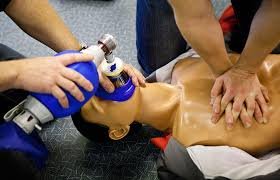Can Bed Bug Bites Spread Disease? The Truth Revealed

Bed bugs are among the most frustrating and unwelcome pests to encounter in a home, hotel, or even public transport. These tiny, reddish-brown insects are infamous for their ability to hide in small cracks and crevices, emerge at night, and feed on human blood while their hosts are asleep. But beyond the irritation and stigma, one of the most common questions people ask is: Can bed bug bites spread disease? This article explores the truth behind this concern and separates facts from myths.
Understanding Bed Bugs
Bed bugs are small, parasitic insects that feed primarily on human blood. Unlike mosquitoes or ticks, they don’t live on the body or burrow into the skin; instead, they hide in bedding, furniture, wall cracks, and other places near where people sleep. They are nocturnal feeders, typically biting exposed areas like the arms, neck, face, or legs.
These bites can cause itching, redness, and swelling. Some people may even develop allergic reactions to the bites, but not everyone reacts the same way. The bites often appear in a line or cluster and can resemble other insect bites, which sometimes makes it hard to identify the cause without seeing the bug itself.
The Main Concern: Can They Transmit Disease?
The biggest concern for most people is whether these bites are more than just a nuisance — can they actually make you sick?
The short answer: No, bed bugs are not known to spread diseases to humans.
According to leading health organizations like the Centers for Disease Control and Prevention (CDC) and the World Health Organization (WHO), bed bugs are not vectors of infectious diseases. This means they do not carry and transmit pathogens from one human to another through their bites.
This fact places bed bugs in a different category from other blood-feeding insects such as:
- Mosquitoes, which can transmit malaria, dengue, Zika, and West Nile virus.
- Ticks, which are known carriers of Lyme disease, Rocky Mountain spotted fever, and others.
- Fleas, which can transmit plague and murine typhus.
Despite feeding on blood, bed bugs do not serve as carriers of viruses, bacteria, or parasites that cause disease in humans.
See also: How to Maintain Healthy Teeth at Every Age
Why Don’t Bed Bugs Transmit Diseases?
Scientists have studied bed bugs extensively to determine their potential for spreading disease. Several reasons explain why they are not effective disease transmitters:
- Biological limitations: The digestive systems of bed bugs do not allow disease-causing organisms to survive long enough to be transmitted to a new host.
- Feeding behavior: Bed bugs feed for a few minutes and then retreat to hiding spots. They don’t switch hosts quickly or frequently, which limits the opportunity for disease transmission.
- Lack of systemic infection: Even if a pathogen enters a bed bug’s system, it usually does not replicate or persist in a way that would allow for transmission.
Laboratory studies have occasionally detected pathogens like hepatitis B virus or HIV in bed bugs after feeding on infected blood. However, there is no evidence that these organisms are transmitted through bed bug bites in real-life scenarios.
Secondary Health Effects of Bed Bug Bites
While bed bugs don’t transmit disease directly, this doesn’t mean they are harmless. Their presence can lead to several secondary health issues, including:
1. Allergic Reactions
Some individuals may experience mild to severe allergic responses to bed bug bites ( væggelus bid ). These can range from localized itching and redness to more intense swelling and inflammation. In rare cases, anaphylaxis (a severe allergic reaction) could occur, although this is extremely uncommon.
2. Skin Infections
Excessive scratching of bed bug bites can break the skin and lead to infections like impetigo, cellulitis, or lymphangitis. These are not caused by the bed bugs themselves, but rather by bacteria that enter the body through open wounds created by scratching.
3. Mental Health Impacts
The psychological effects of a bed bug infestation can be significant. Victims often report:
- Anxiety and stress
- Sleep disturbances and insomnia
- Embarrassment and social isolation
In severe cases, dealing with bed bugs has even led to symptoms of depression or post-traumatic stress disorder (PTSD). The emotional toll can be much worse than the physical effects of the bites themselves.
Misconceptions and Myths
Due to their unpleasant nature and the fear they provoke, bed bugs have become surrounded by myths. Here are some common misconceptions:
- “Bed bugs only infest dirty places.”
Not true. Bed bugs are attracted to humans, not dirt. They can be found in clean homes, luxury hotels, and even airplanes or offices. - “You can feel them bite you.”
Most people don’t feel the bite when it happens because bed bugs inject a small amount of anesthetic and anticoagulant into the skin. - “They jump or fly.”
Bed bugs don’t jump or fly. They crawl and can move quickly over floors, walls, and ceilings. - “You can get sick from bed bugs.”
As we’ve covered, bed bugs are not known to transmit diseases. The real health concerns are mostly allergic or psychological.For more read https://vaeggelus-fri.dk/
Prevention and Control
Although bed bugs don’t spread disease, they are a major nuisance and should be taken seriously. Prevention and control involve:
- Inspecting second-hand furniture or mattresses before bringing them home.
- Checking hotel beds, headboards, and sheets when traveling.
- Vacuuming and cleaning regularly, especially around sleeping areas.
- Sealing cracks and crevices in walls and furniture where bed bugs may hide.
- Contacting pest control professionals for severe infestations. DIY methods often fail to eliminate them completely.
Conclusion
The idea that bed bug bites can spread disease is a widespread fear, but current scientific evidence does not support this claim. While these pests are undoubtedly unpleasant and can cause a range of health problems — from skin irritation to anxiety — they are not disease vectors like mosquitoes or ticks




